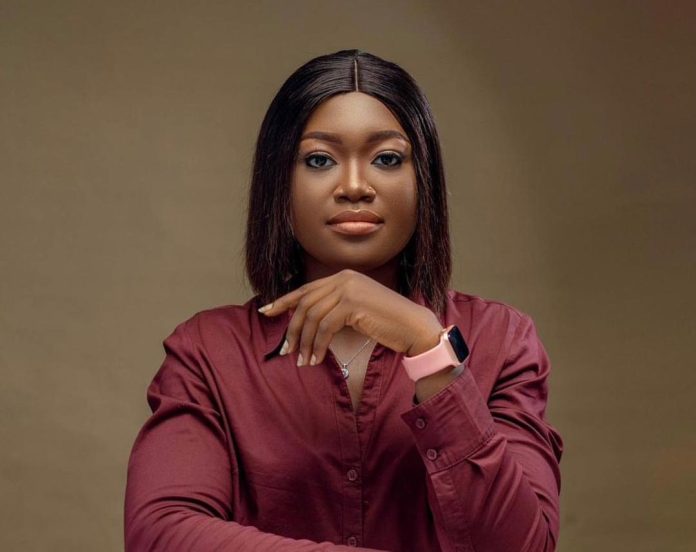Quadri Adejumo
The sports industry in Nigeria has long suffered from ineffective structures, with a major issue being the deteriorating infrastructure. For nearly a decade, outdated stadiums and poorly maintained sports facilities have hindered athlete progression and competition. The lack of modern equipment further exacerbates the problem.
Another significant challenge is poor funding. Insufficient financial support from both the government and the private sector has limited opportunities for athletes, teams, and sports programs. This has led to a severe brain drain, where talented Nigerian athletes leave the country for better prospects, depriving the nation of their skills.
Additionally, the industry has been marred by inadequate strategic planning and governance, essential for driving growth and developing sustainable sports programs.
Amid these challenges, Sandra Omoniyi, a renowned expert in sports management and education, is on a mission to transform Nigeria’s sports landscape. Her groundbreaking research explores the link between marketing strategies and sports talent development in South West Nigerian universities.
Inspiration from the West
Sandra’s interest in Western talent development systems, particularly the success stories of athletes like Bronny James—son of NBA legend LeBron James—sparked her research. She was inspired by the National Collegiate Athletic Association’s (NCAA) commitment to athlete development.
“The likes of Bronny James and the NCAA’s system motivated my research,” Sandra explains with enthusiasm. “Their framework fosters growth, provides opportunities, and helps create well-rounded individuals. I hope to see such structures in Nigeria, allowing our athletes to reach their full potential.”
Sandra envisions an integrated system where Nigerian athletes are groomed through quality education and sports programs, enabling them to pursue their passion without sacrificing their academics. She aims to create a system where young Nigerians can succeed in both sports and life.
Sandra is driven by a desire to find solutions to the many challenges facing Nigerian athletes, such as the lack of support systems and athletic platforms. She hopes to reverse the trend of talented athletes dropping out of school due to limited opportunities.
“Imagine a system where athletes can pursue their education and sports careers simultaneously without having to compromise on either,” she says. “That’s the future I want for Nigeria. We have the talent, passion, and potential—now we need the structures to support it.”
Challenges Faced by Sports in Nigeria
Several factors hinder the development of sports in Nigeria. First, the country lacks sufficient athletic infrastructure, with outdated facilities and equipment affecting athlete training and development. Secondly, the poor state of infrastructure limits the number of athletes who can participate in sports.
Insufficient financial support has also been a persistent issue, restricting access to quality coaching, training facilities, and equipment. This financial strain limits opportunities for greater exposure and success for athletes and teams.
Moreover, talent identification and development programs are scarce, resulting in many gifted athletes being overlooked and left without the guidance they need to succeed.
Against this backdrop, Sandra’s study, “Marketing Strategies as Correlates of Sports Talent Development in South West Nigerian Universities,” offers hope. Her research identifies key marketing strategies that could bridge the gap between talent identification and successful athlete development.
Sandra highlights the importance of university-brand partnerships in promoting sports talent. These collaborations provide funds, resources, and expertise, helping universities develop their sports programs and attract larger audiences for athletic events.
Sandra also emphasizes the power of storytelling. By sharing compelling stories about athletes, teams, and programs, universities can engage emotionally with their audiences, build fanbases, and attract sponsors.
Community engagement is another crucial aspect of sports development. Organizing clinics, charity events, and fan activities fosters interaction between athletes, teams, and their communities, strengthening social responsibility and creating a sense of belonging.
Finally, Sandra’s study stresses the importance of foundational training for long-term success. By focusing on the fundamentals, athletes can build the skills, knowledge, and physical conditioning necessary to compete at the highest levels.
Recommendations for Success
To achieve her vision, Sandra recommends the establishment of collaborative partnerships between universities, brands, and sports organizations. She also suggests developing compelling storytelling content to promote sports talent, hosting community engagement initiatives, and prioritizing foundational training for athletes.
Sandra underscores the need for accountability among University Sports Directors. “They must know what is expected of them and deliver,” she insists. “We can’t keep using these positions as a form of compensation or retirement benefit and produce subpar athletes.”
Her research has already impacted Nigeria’s sports industry, as international scouts recognize the potential in Nigerian athletes. This could open up new opportunities for student-athletes to showcase their talent.
Expertise and Passion
Sandra recently presented her research at the Federation of Africa University Sports (FASU) conference, where she highlighted the potential for transformative change in Nigeria’s sports sector. Her work, which focuses on marketing strategies to drive sports talent development, offers valuable insights into how Nigerian universities can foster athletic success.
With a distinguished career in sports education and marketing, Sandra’s expertise allows her to approach her research with a unique and nuanced perspective. Her passion for unlocking Nigeria’s sports potential is evident in her work.
“Get ready for a game-changer,” Sandra confidently declares. “Together, we can unlock Nigeria’s sports potential.” This statement is more than a rallying cry—it’s a call to action for stakeholders to unite in building a brighter future for Nigerian sports.




